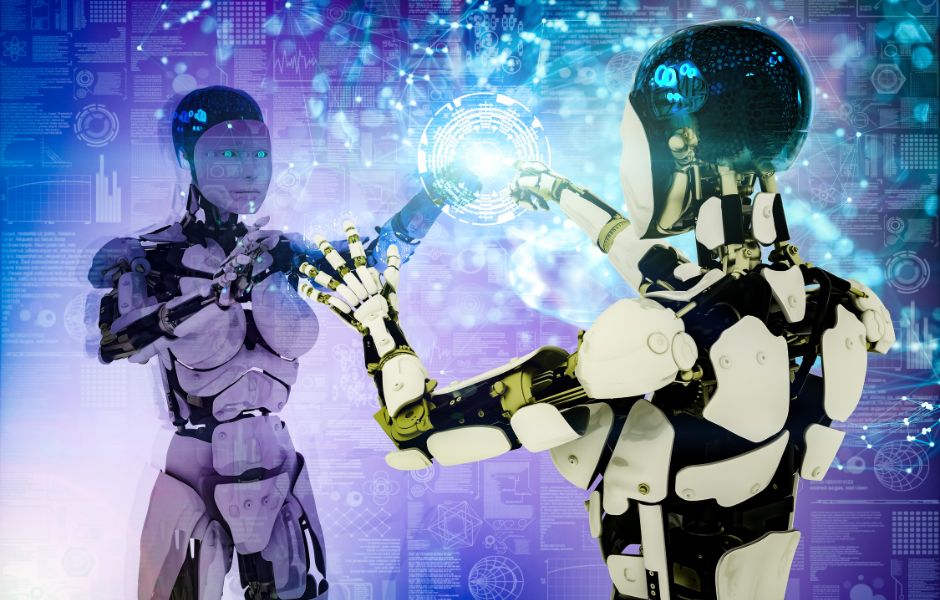Undoubtedly, AI-created content has a place in the SEO industry. Still, as Artificial Intelligence reshapes how content is produced, distributed, and consumed, we want to know whether it will aid or hinder organic ranking performance.
For digital marketing agencies and webmasters seeking innovative ways to engage audiences and enhance online visibility, AI-produced copy is a highly effective way to produce fresh website content. This is particularly beneficial for sites that contain news and blog sections.
However, there is the argument that human-written content will be more engaging and contain a more emotional impact, something that Google is likely to prefer when it comes to organic ranking.
So, what are the benefits of AI-created content?
Automated Writing Tools: AI-powered writing tools are revolutionising content production. These tools can generate articles, blogs, and social media posts, significantly reducing the time and effort required for content creation.
Data-Driven Insights: Artificial intelligence algorithms can analyse vast datasets to identify trends, preferences, and user behaviours. This insight allows for the creation of highly targeted and relevant content.
Content Personalisation: AI facilitates content personalisation at scale. It can tailor content to individual user preferences, enhancing user engagement and experience.
Efficiency and Scalability: With artificial intelligence, content can be produced faster and in larger quantities without compromising quality, enabling businesses to scale their content marketing efforts effectively.
Google’s Stance on AI-Created Content
One of the most pressing questions in the SEO community is whether Google penalises websites that use AI-created content. Google’s latest guidelines emphasise the importance of quality and user value in content.
It is important to remember that Google does not explicitly penalise AI-generated content but focuses heavily on the content’s value, relevance, and usefulness to users. Content that needs to be more accurate, spammy, or of low quality, whether written by humans or artificial intelligence, will likely perform poorly within the search engine rankings.
Comparing Human-Written and AI-created content
Human-Written Content:Pros: Human content creators excel in understanding complex emotional and cultural nuances, leading to content that resonates more deeply with readers. They can incorporate empathy, humour, and creativity, often resulting in more engaging and relatable content.
Cons: Human content creation is typically slower and more resource-intensive. Consistently producing large volumes of unique copy is highly time-consuming, which slows down your productivity and the volume of copy you can create.
AI-Created Content:Pros: AI excels in handling large-scale content production efficiently. It can analyse data and trends to produce content optimised for search engine optimisation purposes. AI-generated content can be ideal for data-driven, factual content where personal touch is less critical.
Cons: Artificial intelligence may struggle with understanding context and emotional subtleties. It might need to fully capture the creative and empathetic aspects that human writers naturally bring to content.
SEO Value: Human vs. AI Content
Regarding SEO, the value lies not in who or what creates the content but in the content’s quality and relevance. High-quality, engaging, and informative content can perform well in search engine rankings, whether created by humans or AI. However, human writers have the edge in creating content with emotional depth and cultural understanding, which tends to produce greater user engagement and longer dwell times – all of which are vital factors for effective digital marketing.
Conclusion
AI provides digital marketing agencies and webmasters with a powerful tool for improving their content creation levels. However, human-created content still has the edge when incorporating emotional depth into the copy.
The most effective content strategy for 2024 is a hybrid approach, leveraging the efficiency and analytical strengths of AI while retaining the creative and empathetic insights of human content creators. This combined approach of human creativity and artificial intelligence is poised to define the future landscape of digital content creation both in the present and the future.
With the introduction of ChatGPT and, more recently, Google Gemini, it is clear that artificial intelligence isn’t going away anytime soon, so digital marketing agencies and webmasters need to make sure that they embrace the new technology available to them rather than turn their noses up at it.





